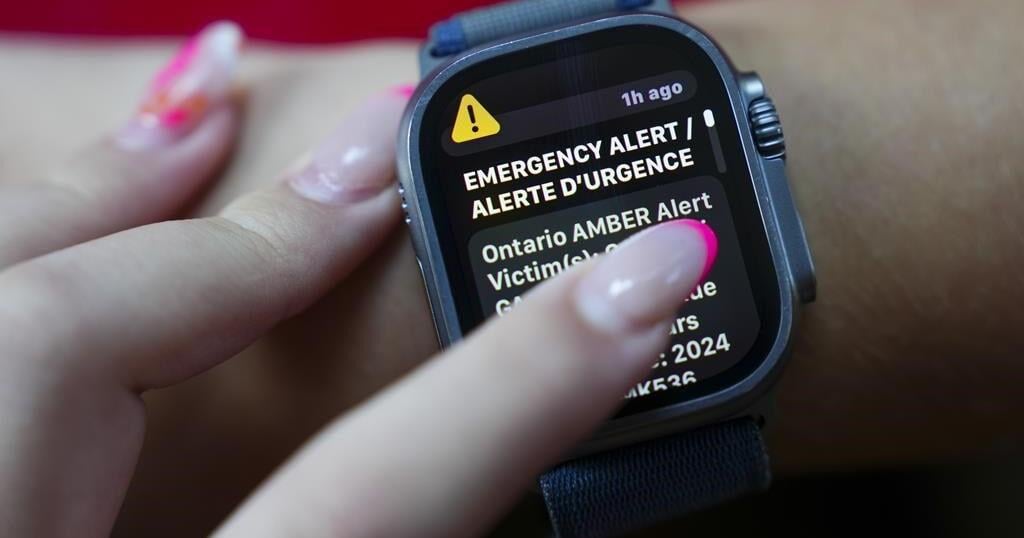TORONTO – When Jenny Tozer’s 18-year-old son with autism had been missing for more than two weeks, she started to prepare herself for the worst.
Logan left their home in Havelock, Ont., in the middle of the night, travelled 35 kilometres north through wooded areas and got lost trying to get back home, his mom said.
He was eventually found in an abandoned building on the 17th day of his disappearance — “safe with only three tick bites and an adventure to tell,” Tozer said — but the outcome could have easily been tragic, she said.
“(I was) trying to figure out how I was going to hold it together for all his siblings, because they couldn’t understand why he wasn’t home either, and they weren’t sleeping,” Tozer said Wednesday at a press conference.
“I wasn’t sleeping. It was kind of chaotic. It was something no one should have to go through and I’m just very, very lucky that he came home alive.”
Tozer is now adding her voice to others calling on the government to create a new type of alert for vulnerable people.
A provincial private member’s bill from New Democrat Monique Taylor would implement a system of alerts for vulnerable people such as children with autism or seniors with dementia, similar to Amber Alerts, but it is stalled at the committee stage in the legislature.
She introduced the bill in March 2023 and one day of public hearings was held a year later, but the next stage — in which the legislative committee looks at the bill clause by clause and considers amendments — has not yet happened.
“We’re here today to let the government know that we’ll do whatever it takes to ensure this passage, whether it’s sharing the bill with a member of the government — take the bill, make it your own, it doesn’t matter,” Taylor said Wednesday.
“This isn’t about me. It’s truly about the legislation and making sure that we get it passed.”
The bill was inspired by the stories of Draven Graham, a boy with autism who drowned in 2022 after going missing, and Shirley Love, a senior who died in December of that year after leaving her home not dressed for winter weather.
Those families support the bill, as does the Ontario Autism Coalition.
“Just try and envision how it would feel to lose a loved one who, due to their disability or cognitive impairment, is unable to ask for help, is unable to understand safety concerns and is often not going to be able to find their way home,” said Kate Dudley-Logue, vice-president of the coalition.
“It’s terrifying, and it’s any caregiver’s worst nightmare. In the autism community, we all hold our breaths and feel this immense stress every time we hear stories like Logan’s, because so many of us have experienced it and know all too well the very real possibility that their child may not come home.”
There are already various tools used to find missing people and try to help keep vulnerable people out of danger, Taylor said, but this alert system would be a necessary additional layer.
Paul Calandra said last year when he was government house leader that he believed the bill was flawed and he wanted it to go to committee so it could be improved. The office of the current government house leader, Steve Clark, did not immediately respond to questions about the bill.
This report by The Canadian Press was first published Nov. 6, 2024.

























